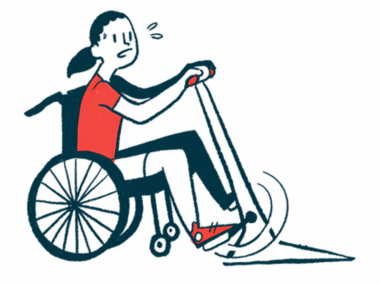MS news notes: Measuring the cost of MS, early treatment, Pilates
Columnist Ed Tobias comments on the week's top MS news
Written by |

Welcome to “MS News Notes,” a column where I comment on multiple sclerosis (MS) news stories that caught my eye last week. Here’s a look at what’s been happening:
MS is costly to patients and society
People with MS understand how costly the disease can be in terms of treatments, insurance, quality of life, and other factors. But the MS News Today story “Disability leads to great costs for patients, society: Real-world data” looks at a study that goes beyond personal expenses.
The study, which reviewed the records of 22,000 people with MS in Germany, reports that as disability increased, so did medical costs and other expenses related to things like mobility aids and support services. Indirect costs, such as the need to use sick time at work or rely on government assistance programs, also increased. None of this should be surprising.
But the research also points out something I believe isn’t always considered: the cost of MS to society in general. Taking the cost of disease-modifying therapies into account — which are paid for by many governmental healthcare systems — the annual cost to society in 2019, per MS patient, ranged from 19,315 euros ($21,000) in people with no disability to mild disability, to 58,576 euros ($63,675) for those with severe disability. That’s the cost of things such as a patient’s inability to work and disability payments.
The researchers conclude that “the findings highlight the socioeconomic burden of MS disease progression and the potential value of halting or delaying disease progression through the early use of high-efficacy therapies.” And this thought leads right into our next story.
The benefits of treating MS quickly
My neurologist and I have always believed in treating my MS aggressively. “Hit it hard and hit it fast” is the phrase I like to use.
As reported in “Early treatment after first MS-like attack reduces long-term risk,” researchers agree with that belief. The study covered in this story found that starting treatment within six months of a patient’s first symptoms is associated with a lower risk of long-term disability. This group of patients were about 45% less likely to develop moderate disability than those whose treatment began more than 16 months after their first MS-like attack.
“When it comes to MS treatment, the earlier the better,” the study’s co-author says. I agree.
Pilates also might help
The study in this story validates something else I believe: Pilates, a form of mind-body exercise, can improve walking ability. It did for me when I tried it several years ago.
As the story “Pilates with relaxation improves walking, self-awareness in MS” reports, study participants combined Pilates with two relaxation techniques: Benson’s relaxation and Jacobson’s progressive muscle relaxation for physical self-awareness. Benson’s has patients close their eyes, relax their muscles, repeat “I am,” and ignore disturbing thoughts. Jacobson’s requires patients to lie in a quiet room and contract and release their muscles.
Patients who combined one of the relaxation techniques with Pilates three times a week over seven weeks showed significant gait and cognition improvement over their baseline. A control group that received no treatment did not show any improvement.
This study was very small, with only 22 women, and there’s no indication whether Pilates without relaxation would improve gait as much as it did with it, but it encourages me to return to Pilates classes. If only I could afford to do that three times a week!
Note: Multiple Sclerosis News Today is strictly a news and information website about the disease. It does not provide medical advice, diagnosis, or treatment. This content is not intended to be a substitute for professional medical advice, diagnosis, or treatment. Always seek the advice of your physician or other qualified health provider with any questions you may have regarding a medical condition. Never disregard professional medical advice or delay in seeking it because of something you have read on this website. The opinions expressed in this column are not those of Multiple Sclerosis News Today or its parent company, Bionews, and are intended to spark discussion about issues pertaining to multiple sclerosis.







Limitless Physiotherapy
Nice day! You did a fantastic job on this blog article, and if it's okay with you, I'd like to add a little extra information.
When it comes to Multiple Sclerosis (MS), early treatment is invaluable. Consider Pilates as a complementary therapy. Its physical and mental benefits can enhance your quality of life while managing the costs associated with MS treatment. Prioritize your well-being and make every day count!
Ed Tobias
Pilates and physical therapy (or physiotherapy) are excellent complementary therapies. I've done some Pilates and regularly see a PT. I've also done hippotherapy (horseback) which is really great for both mind and body. Here's a column that I wrote about PT a while ago. https://multiplesclerosisnewstoday.com/columns/2020/12/15/physical-therapy-stiffness-back-pain/
Ed